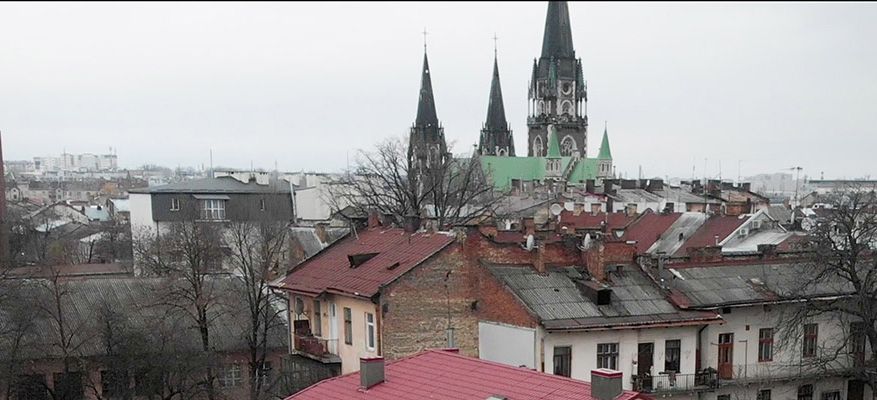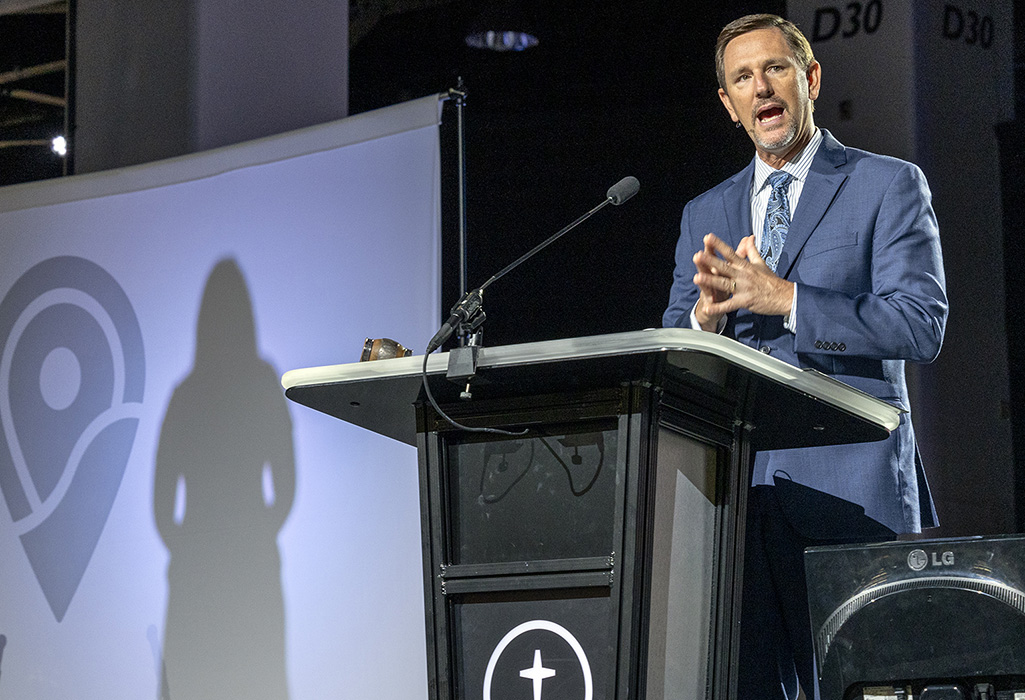
Lviv, Ukraine
Baptists in western Ukraine have made plans to shelter fellow believers in the case of a Russian invasion at Ukraine’s eastern border, a Southwestern Baptist Theological Seminary (SWBTS) graduate who now leads a Baptist seminary in Ukraine told Baptist Press.
“If Russia will invade, they will invade in eastern part and northern part, and a little bit of south,” said Yarsolav “Slavik” Pyzh, president of Ukrainian Baptist Theological Seminary (UBTS) in Lviv who holds a doctorate from SWBTS.
“Churches already agreed,” Pyzh said. “Those that are on the western part of Ukraine … told our brothers and sisters in other parts of Ukraine [that] if something happens we will open our homes and our churches to you.”
Russia persecutes Christians through restrictions such as the 2016 Yarovaya Law criminalizing evangelism outside church walls. Russia considers any church beyond the government-influenced Russian Orthodox Church to be sectarian or a cult.
Pyzh believes Russian victory in Ukraine would more than likely lead to Ukraine being split into two countries, with western Ukraine remaining independent. Baptist churches that would fall to Russian rule as a consequence would likely transition to spread the gospel underground, Pyzh said, rather than abandon the faith.
“The church will go underground,” he said. “You have to understand that historically we had that experience before under the Soviet Union. So the church did not forget what does it mean to be persecuted, and I think that we will rearrange, reorganize, and still do what we always do, still preach the gospel.”
About 400 of the 1,300 students enrolled in UBTS are from eastern Ukraine, Pyzh said. UBTS has already helped Christian missionaries safely navigate the region during the current threat of violence.
“I think here in the West we would have the opportunity to train more students, to train more people, facilitate some help and support them in any possible way,” he said, “because I don’t believe that [Russian President Vladimir] Putin will come here.”
Malcolm Yarnell, who taught Pyzh at SWBTS more than a decade ago, has asked Southern Baptists to pray for Christians in both Ukraine and Russia.
“I would pray first of all for peace and justice between the two nations,” said Yarnell, SWBTS research professor of theology. “I think that’s important for us to pray for, because we want human beings to be respected and to be treated with human dignity. And in wartime, if war were to happen, human dignity seems to go out the window.”
He described his second prayer request, “for the witness of the churches,” as closer to his heart.
“Both Russian Baptists and Ukrainian Baptists believe firmly in religious liberty,” Yarnell said. “They are respectful towards the state, but … they see themselves as coming under the Lordship of Jesus Christ, and they want to serve Christ and they want to witness for Christ.
“Like Baptists in so many places, they have a strong legacy of asking for religious liberty, and this is true of all of the Baptists there.”
Pyzh encouraged churches in the U.S. to reach out to any Christians and churches in Ukraine with whom they’ve already established relationships, to earnestly pray for Ukrainian Baptists and to find ways to provide humanitarian relief in the event of armed conflict.
“I think if U.S. churches will renew their connections with Ukrainian churches, with Ukrainian entities, and ensure that yes, we are with you, yes, we are praying for you, yes, we are ready to step in and help, in case you need that help,” Pyzh said, “that would be a tremendous encouragement for our people, that they are not alone in that.”
The evangelical church in the U.S. is in a better position than the evangelical church in Europe, Pyzh said.
“You have to understand, the evangelical church in Europe is not that strong,” he said. “But the evangelical church and Baptist church in particular in the United States are a lot stronger.”
About 2,000 churches are members of the Ukrainian Baptist Union, comprising about 100,000 believers. UBTS, located about 1,000 miles west of the Ukrainian-Russian border, has graduates serving in 230 Ukrainian churches, Pyzh said.
It’s unclear how humanitarian aide would be delivered in the event of war, he said, but pointed to such groups as the American Red Cross.
(EDITOR’S NOTE – Diana Chandler is Baptist Press’ senior writer.)


